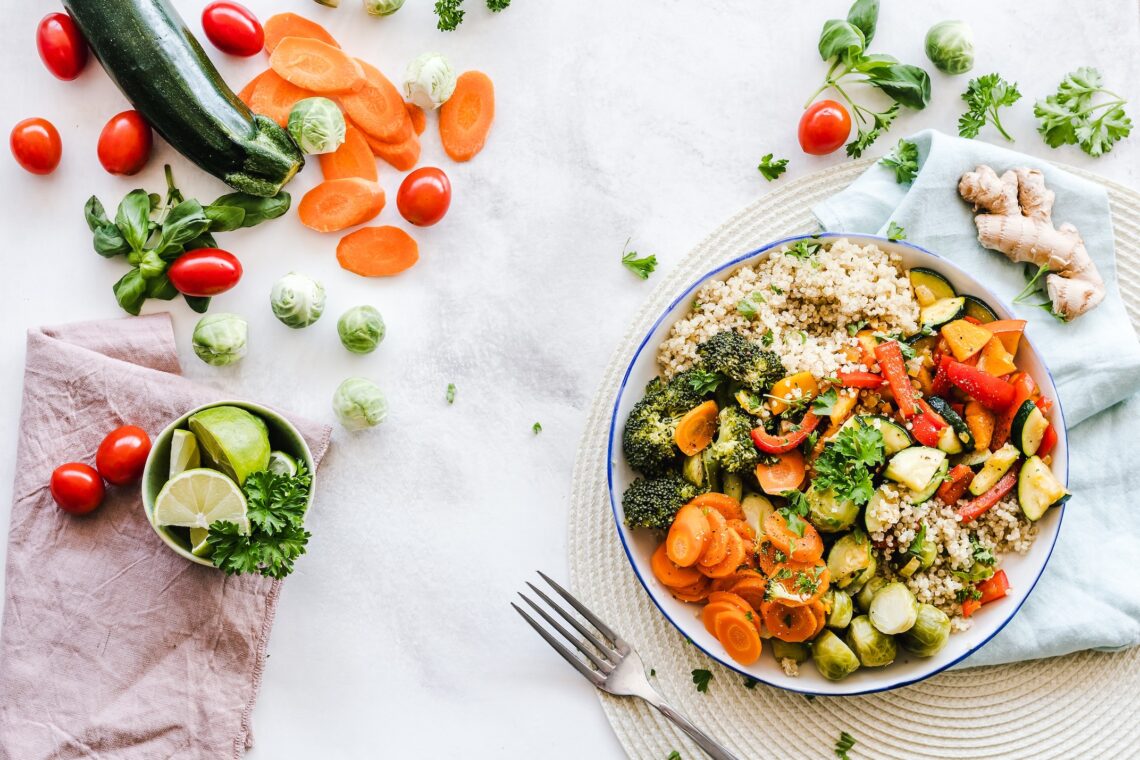
How To Improve Your Gut Health – It’s all in the Microbiome
If you’re still feeling a little bloated from the festive season, there is much you can do to start feeling more ease in the abdominal region.
In short, you want to increase the friendly gut microbiome as it impacts every system in your body, from your skin to your immune health and even your mental health. So, if you’re feeling sluggish and not your best self, then it could well be that the bad bacteria are currently winning the battle.
But don’t despair, as it’s fairly simple for the good bacteria to take hold and win the war. Research shows that with dietary and lifestyle changes, you can start changing the composition of bacteria in your favour in just a few short days.
New year detox
This would be the first thing to consider, to give your cells a good clean out and boost your main organs of detoxification, which comprise of your gut, liver and kidneys.
There are various ways you might approach this. You could commit to a plant-based diet for a month or do a 3-to-5-day juice fast. There are so many ways to support the body to detox that we will save that post for another day!
Reduce harmful foods
A simple way of promoting the body to start detoxing and healing itself naturally, is to remove the things that can aggravate the gut and really don’t give many, or even any health benefits, other than satisfying cravings of course!
Fried and processed foods
The oils used to fry foods, such as corn oil and canola oil are not healthy oils to consume, and they impact your gut microbiome negatively.
These foods are usually also packed with additives and preservatives. They also provide little fibre, which is what is required to help the good bacteria to flourish.
Replace fried and processed foods with fresh whole food ingredients and ensure you add plenty of veggies with your meals. Cruciferous vegetables and green leafy vegetables in particular are packed full of nutrients and fibre and will help the growth of healthy bacterial colonies, and the fibre will also help keep you fuller for longer.
Aim for a rainbow assortment of vegetables throughout the week to ensure you are getting a wide range of beneficial phytochemicals into your diet.
Dairy
Some studies show that dairy products such as cow’s milk can have a negative impact on the gut microbiome, which allows bad bacterial strains to colonise and pushes beneficial bacteria out.
If you are sensitive to dairy or are lactose intolerant, try a milk substitute such as oat or almond milk, both of which can be made quite easily at home. Or even better, to boost the beneficial bacteria in your gut, try fermented dairy products such as yogurt and kefir, both of which will support your health and you will be less likely to react negatively to.
Alcohol
Excessive alcohol consumption can change the makeup of the gut microbiota and lead to gut permeability. This is when the tight junctions in the gut that keeps food and molecules where they should be, lose their integrity allowing material to move into the bloodstream and other organs.
Sugar and artificial sweeteners
Bad bacteria thrive on white sugar which is detrimental to gut bacteria. Try opting for more natural sweeteners such as coconut sugar or honey. Or, if you have a sweet craving, try a sweet piece of fruit which might just do the trick. High amounts of sugar are often hidden in many processed foods, even the non-sweet variety, so keep an eye on that ingredients list!
Artificial sweeteners also negatively impact the makeup of the gut microbiome and give rise for bad bacteria to flourish. This could harm the good bacteria colonies, so steer clear from artificial sweeteners if possible.
Fermented foods
So, we’ve talked a lot about what to avoid and some alternatives you can replace them with, but there is so much more that you can do. Consume prebiotics, probiotics and fermented foods to increase the beneficial gut bacteria. Feed the bacteria with prebiotics such as artichokes, bananas and high fibre vegetables. Increase the diversity of probiotics by eating plain yogurt and fermented foods such as vegetables, sauerkraut, kimchi, miso and kombucha.
Emotional wellbeing
Now let’s not forget about our mental health, stress also plays a big part in the health of our gut microbiome. Chronic long-term stress has been shown cause dysbiosis which can also lead to a host of other health conditions.
Gentle techniques practised regularly, such as mindfulness breathing, stretching, yoga and walking can all help to reduce stress and help maintain a healthy gut flora alongside nutritional support.
A healthy gut bacteria will influence many aspects of your overall health. It can also cause many emotional and physical conditions if out of whack. So, start the new year off by looking after those little critters and you’ll reap the rewards for the rest of the year.
Are you ready for greater health and wellbeing? Search Holistic Room for qualified holistic health practitioners for your unique needs, or email us at support@holisticroom.com and we’ll get back to you promptly.
Take our short quiz and find out what therapies may be beneficial for you. This is by no means a replacement for professional support but can help to shed a little light on possible directions to take.


